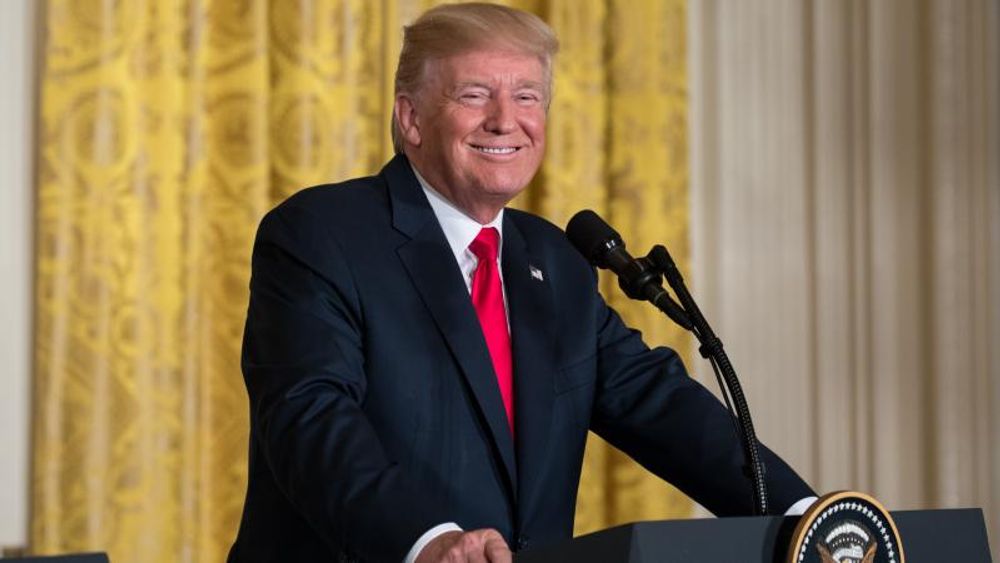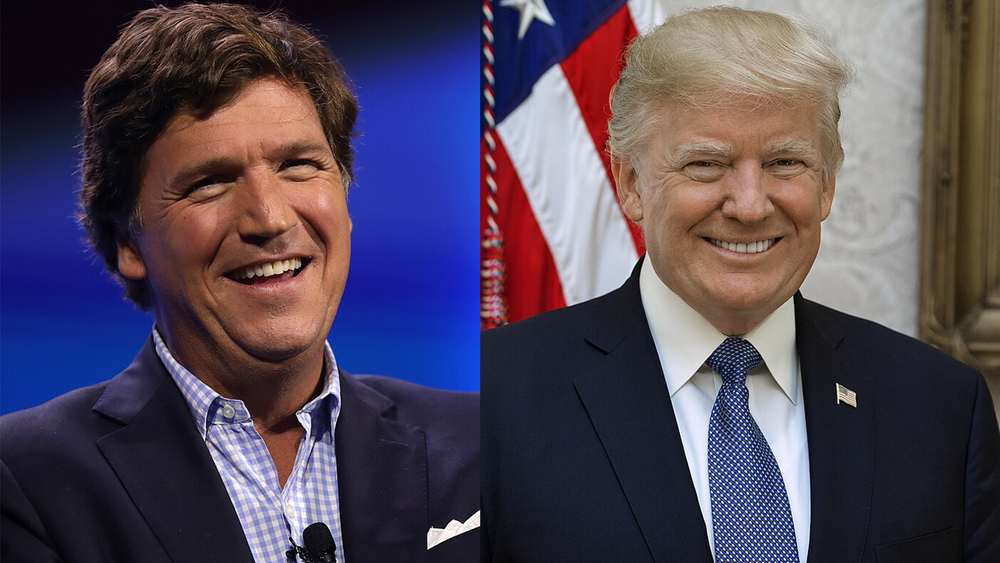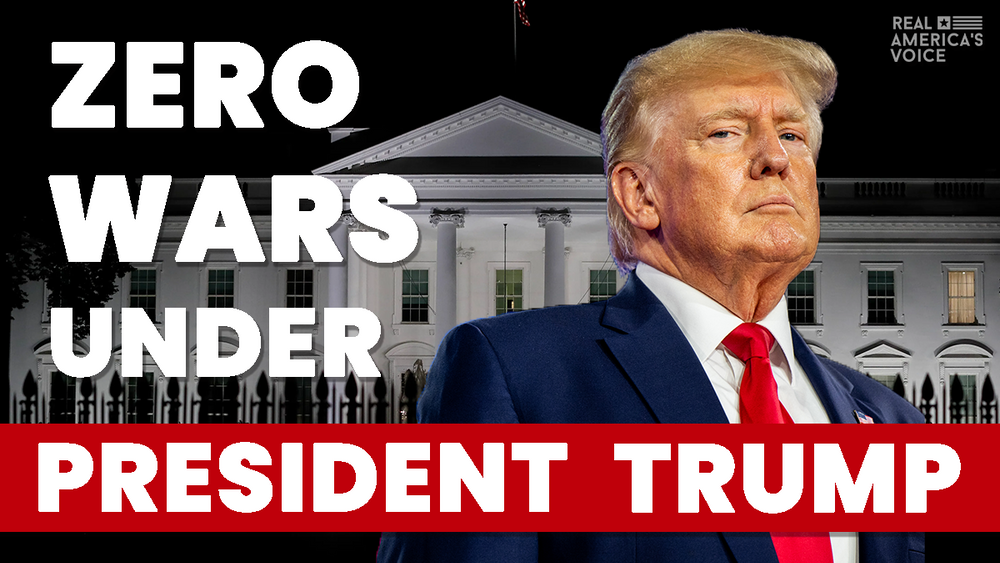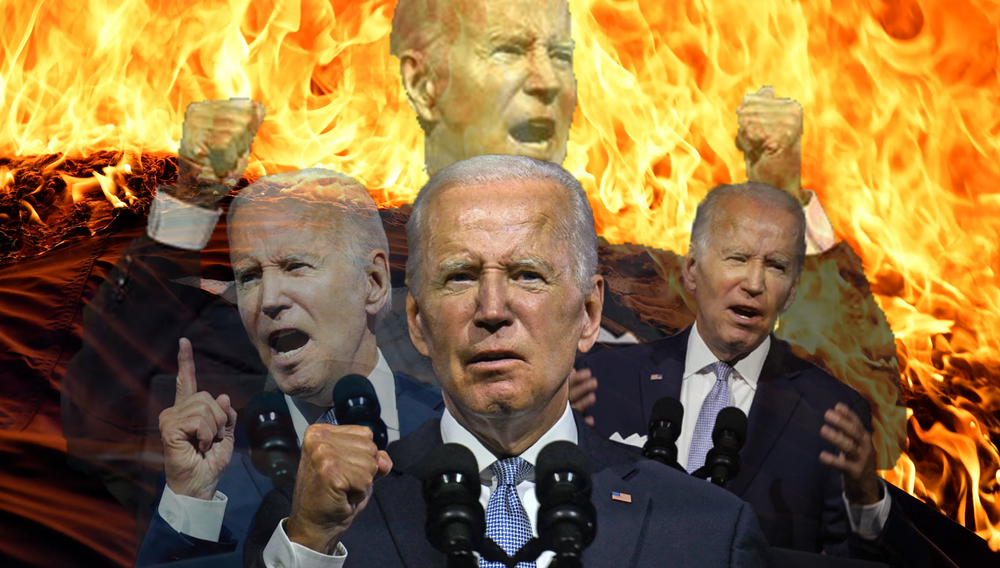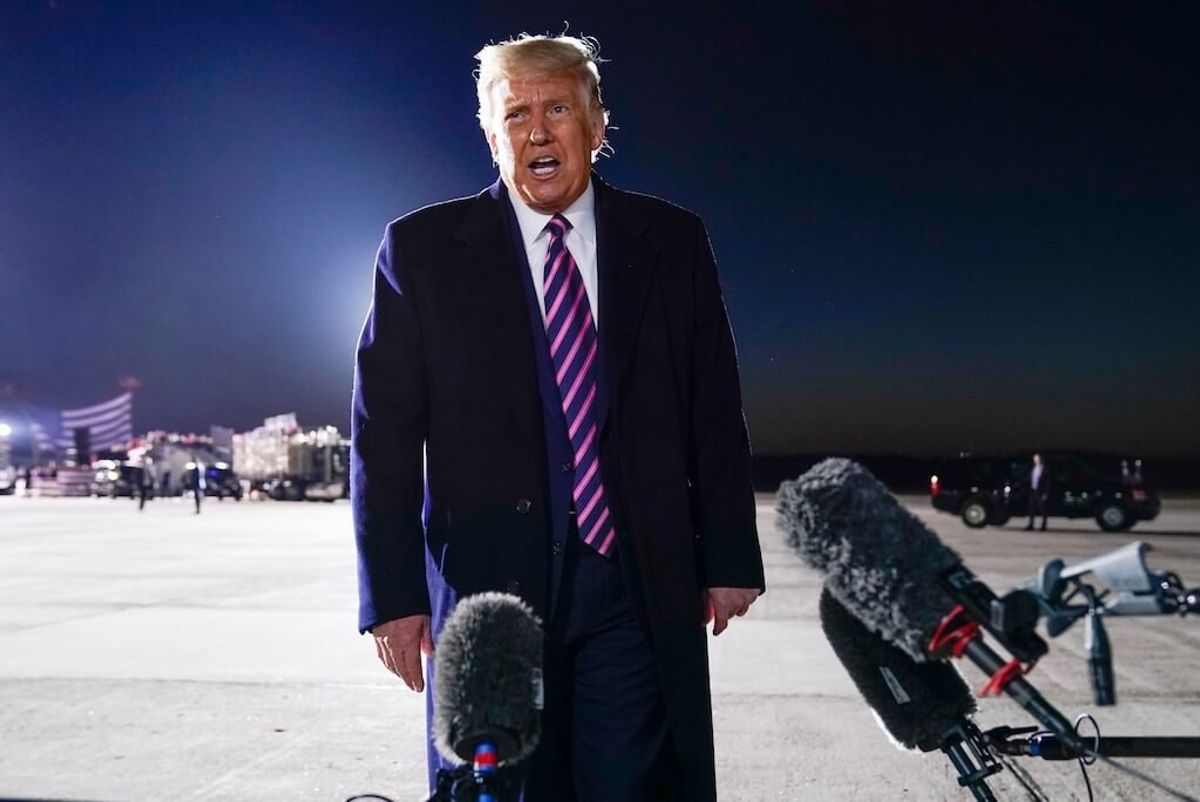
Trump Calls on Senate to Vote ‘Without Delay’ on His Supreme Court Pick
President Donald Trump on Saturday urged the Republican-run Senate to consider “without delay” his upcoming nomination to fill the Supreme Court seat vacated by the death of Justice Ruth Bader Ginsburg just six weeks before the election.
The White House was making preparations to select a nominee for the seat held by Ginsburg, who spent her final years on the bench as the unquestioned leader of the court’s liberal wing.
Senate Republican Majority Leader Mitch McConnell, vowed on Friday night, hours after Ginsburg’s death, to call a vote for whomever Trump nominated. Democrats said Republicans should follow the precedent they set in 2016 by not considering a Supreme Court choice in the run-up to an election.
Trump made his view clear in a tweet Saturday: “We were put in this position of power and importance to make decisions for the people who so proudly elected us, the most important of which has long been considered to be the selection of United States Supreme Court Justices. We have this obligation, without delay!”
.@GOP We were put in this position of power and importance to make decisions for the people who so proudly elected us, the most important of which has long been considered to be the selection of United States Supreme Court Justices. We have this obligation, without delay!
— Donald J. Trump (@realDonaldTrump) September 19, 2020
Democratic presidential nominee Joe Biden said any vote should come after the Nov. 3 election. "Voters should pick the president and the president should pick the justice to consider,” Biden said.
The impending clash over the vacant seat — when to fill it and with whom — is sure to significantly affect the stretch run of the presidential race, further stirring passions in a nation already reeling from the pandemic that has killed nearly 200,000 people, left millions unemployed and heightened partisan tensions and anger.
McConnell, who sets the calendar in the Senate and has made judicial appointments his priority, declared unequivocally in a statement that Trump’s nominee would receive a confirmation vote in the chamber. In 2016, McConnell refused to consider President Barack Obama’s choice for the high court months ahead of the election, eventually preventing a vote.
As the nation learned of Ginsburg's death, Trump was unaware, speaking for more than an hour and a half at a Minnesota rally without mentioning it. He huddled with aides after stepping off stage but acted surprised when he spoke with reporters moments later, saying he did not know she had died.
 Supreme Court Justice Ginsburg Dies at 87Ginsburg, a stalwart liberal and the second woman to serve on the court, died Friday from complications with cancer
Supreme Court Justice Ginsburg Dies at 87Ginsburg, a stalwart liberal and the second woman to serve on the court, died Friday from complications with cancer
The president told reporters that Ginsburg was “an amazing woman who led an amazing life.” Aides had worried how the Minnesota crowd would react if Trump mentioned her death from the stage, according to a White House official not authorized to publicly discuss private deliberations and spoke on condition of anonymity.
But Trump had noted in his rally speech that the next presidential term could offer him as many as four appointments to the nine-member court, whose members are confirmed for life. “This is going to be the most important election in the history of our country and we have to get it right,” he added.
A confirmation vote in the Senate is not guaranteed, even with a Republican majority. McConnell has not indicated if he bring a vote before the election.
Typically it takes several months to vet and hold hearings on a Supreme Court nominee, and time is short ahead of the election. Key senators may be reluctant to cast votes so close to the election. With a slim GOP majority, 53 seats in the 100-member chamber, Trump’s choice could afford to lose only a few.
McConnell did not specify the timing, but trying for confirmation in a post-election lame-duck session if Trump had lost to Biden or Republicans had lost the Senate would carry further political complications.
Democrats immediate denounced McConnell's move as hypocritical, pointing out that he refused to call hearings for Merrick Garland, Obama's pick, 237 days before the 2016 election. The 2020 election is 46 days away.
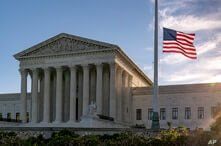 Battle Heats Up Over Justice Ginsburg's ReplacementDeath of the liberal justice gives President Donald Trump an opportunity to add another conservative to the bench, shifting the court's ideological balance
Battle Heats Up Over Justice Ginsburg's ReplacementDeath of the liberal justice gives President Donald Trump an opportunity to add another conservative to the bench, shifting the court's ideological balance
Senate Democratic leader Charles Schumer, in a tweet, echoed word for word what McConnell said in 2016 about the Garland nomination: “The American people should have a voice in the selection of their next Supreme Court Justice. Therefore, this vacancy should not be filled until we have a new president."
Trump said last month that he would “absolutely” try to fill a vacancy if one came up before the end of his first term. “I would move quickly, ” Trump said in an interview with conservative radio host Hugh Hewitt. “Why not? I mean, they would. The Democrats would if they were in this position.”
Trump last week added 20 names to his list of candidates he’s pledged to choose from if he has future vacancies to fill. He contrasted his list with unnamed “radical justices” he claimed Biden would nominate who would “fundamentally transform America without a single vote of Congress."
Trump released a similar list in 2016 in a bid to win over conservative and evangelical voters who had doubts about his conservative credentials. Among those on his current list: Sens. Ted Cruz and Tom Cotton, former Solicitor General Noel Francisco and Judge Amy Coney Barrett of the 7th U.S. Circuit Court of Appeals, in Chicago, long a favorite of conservatives.
The average number of days to confirm a justice, according to the Congressional Research Service, is 69, which would be after the election. But some Republicans quickly noted that Ginsburg was confirmed in just 42 days.
Four GOP defections could defeat a nomination, while a tie vote could be broken by Vice President Mike Pence.
Among the senators to watch are Republicans Susan Collins of Maine, Lisa Murkowski of Alaska, Mitt Romney of Utah and others.
Collins is in a tight race for her own reelection, as are several other GOP senators, including Cory Gardner in Colorado. Murkowski and Romney have been critical of Trump and protective of the institution of the Senate.
Some Republicans, including Collins and Murkowski, have suggested previously that hearings should wait if a seat were to open. And because the Arizona Senate race is a special election, that seat could be filled as early as November 30 — which would narrow the window for McConnell if the Democratic candidate, Mark Kelly, hangs onto his lead.
In a note to his GOP colleagues Friday night, McConnell urged them to “keep their powder dry” and not rush to declare a position on whether a Trump nominee should get a vote this year.
“For those of you who are unsure how to answer, or for those inclined to oppose giving a nominee a vote, I urge you all to keep your powder dry,” McConnell wrote. “This is not the time to prematurely lock yourselves into a position you may later regret.”
McConnell argued that there would be enough time to fill the vacancy and he restated his argument that the 2016 Senate precedent — in which a GOP-held Senate blocked Obama’s election-year nomination — did not establish a rule that applies to the Ginsburg case. Under McConnell, the Senate changed the confirmation rules to allow for a simple majority.
Obama called for Republicans to wait, saying “a basic principle of the law – and of everyday fairness – is that we apply rules with consistency and not based on what’s convenient or advantageous in the moment.”
One difference from 2016 is that, despite the vacancy resulting from Ginsburg’s death, conservatives have a working majority of five justices on a range of issues. When Antonin Scalia died four years ago, the court was divided between four liberals and four conservatives.
The next pick could shape important decisions, including on abortion rights, as well as any legal challenges that may stem from the 2020 election. The 2018 hearings on Trump's second pick, now-Justice Brett Kavanaugh, turned into a bitter partisan battle after sexual assault allegations were made.
Biden has promised to nominate a Black woman to the high court if given the chance. He has said he’s also working on a list of potential nominees, but the campaign has given no indication that it will release names before the election.
 More US Coronavirus Relief Still Possible After Trump Signals InterestNext PostGinsburg’s Death to Trigger Confirmation Process for Successor
More US Coronavirus Relief Still Possible After Trump Signals InterestNext PostGinsburg’s Death to Trigger Confirmation Process for Successor

